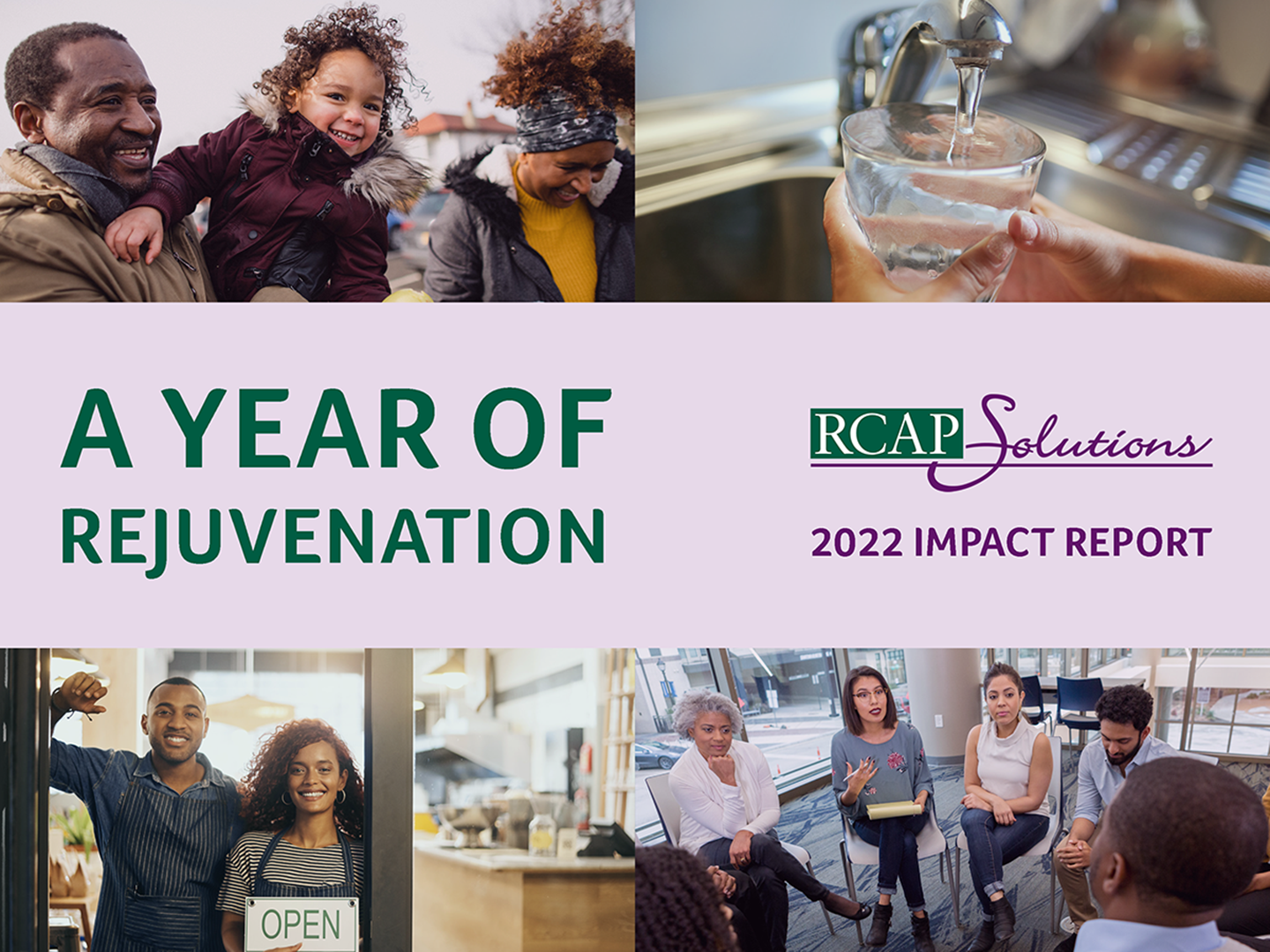Overview
RCAP Solutions offers a wide variety of programs which assist income-eligible tenants by paying subsidies directly to the landlord. Our flagship program, the Section 8 Housing Choice Voucher Program (HCVP), is always seeking participants who have available units to lease. By participating in the program, we can help you meet your financial goals as a property owner and provide families with a place they are proud to call home.
Our team has a long history of supporting both parties through our programs and services. If you have questions related to your rights/responsibilities as a landlord, we’re here to help.
When you’re ready to sign up, see the “Steps to Becoming a Landlord in the Housing Choice Voucher Program (HCVP)” section below or contact us via email: RentalAssistance@rcapsolutions.org or phone: (978) 630-6668
Information for New & Prospective Landlords
Becoming an RCAP Solutions landlord is simple! To become a landlord with the Housing Choice Voucher Program, you will need an HCV tenant. To get your property seen by HCV families, follow these steps:
- In your marketing materials, always mention that your property is available for voucher families.
- Market your unit with us! RCAP Solutions has partnered with AffordableHousing.com, which allows you to list your rental units online. Listings are available to potential Housing Choice Voucher families seeking apartment units, duplexes, single-family homes, or townhomes in the private market. To list your available units with us, click here and select “List Your Property”.
- If a voucher family requests to rent your property:
-
- Conduct your usual screening.
- You and the voucher family fill out and submit the request for tenancy approval (RFTA), which the voucher family will have.
- Prepare the property for inspection using the Housing Quality Standards checklist.
- You and the voucher family will sign your lease and then you and RCAP Solutions will sign the Housing Assistance Payments (HAP) contract.
The Housing Choice Voucher Program (HCVP) has many partners. A summary of each party’s role is below.
- HUD: HUD provides funds to allow RCAP Solutions to make housing assistance payments on behalf of the HCV tenants. HUD also pays RCAP Solutions a fee for the costs of administering the program. HUD monitors RCAP Solutions’ administration of the program to ensure program rules are properly followed.
- RCAP Solutions: RCAP Solutions administers the Housing Choice Voucher Program locally and provides the HCV tenant with the housing assistance. RCAP Solutions must examine the tenant’s income and household composition, and ensure that the housing unit meets minimum housing quality standards. RCAP Solutions enters into a contract with the landlord to provide housing assistance payments on behalf of the family.
- Landlord: The role of the landlord in the voucher program is to provide decent, safe, and sanitary housing to a tenant at a reasonable rent. The dwelling unit must pass the program’s housing quality standards and be maintained up to those standards as long as the owner receives housing assistance payments. In addition, the landlord is expected to provide services as agreed to in the lease signed with the tenant and the contract signed with RCAP Solutions.
- Tenant: When a tenant selects a housing unit, they are expected to comply with the lease and the program requirements, pay their share of rent on time, maintain the unit in good condition, and notify RCAP Solutions of any changes in income or family composition.
- You will get timely and dependable payments from RCAP Solutions. Participating, compliant landlords will receive timely and dependable housing assistance payments (HAP) each month once the HAP contract and lease are signed.
- You will get your full rental payment. When a HCV tenant’s income permanently changes, the portion of rent paid by RCAP Solutions and the tenant is adjusted to reflect this change. This provides financial protection to landlords in that if a HCV tenant’s income decreases, there is a process for RCAP Solutions to pay a larger portion of the rent to the landlord so the landlord continues to receive a full rental payment.
- You will receive regular inspections. Some landlords appreciate the routine inspections because they provide an opportunity to check on the condition of the unit. This can result in identifying maintenance needs that may have otherwise gone unnoticed for some time. Landlords that own or manage properties across wide geographies in particular tend to appreciate the value in having a routine, objective inspection of their rental units.
- You may request annual reasonable rent increases. Compliant landlords may request a rent increase at the annual anniversary of the HAP contract by written notice to RCAP Solutions.
- You have the opportunity to help low-income, elderly, disabled, and veteran households, as well as families with children, by providing affordable housing. More than 50% of vouchers serve elderly or non-elderly disabled families. About 45% of vouchers assist single-parent families.
Information for Current Landlords
Before a voucher family can rent a unit, it must pass a Housing Quality Standards (HQS) inspection.
Initial inspections are usually scheduled within 5 weeks of receipt of the completed Request for Tenancy Approval (RFTA). RCAP Solutions will provide a 6-hour visit window. The landlord must be present for the inspection to take place.
Any items that do not pass the inspection are called “deficiencies”. The inspector will provide information on what corrections are needed for the deficiency and the timeframe to make corrections.
Additional inspections are required on an annual basis or may be requested for emergency circumstances.
After a voucher family requests to rent your property, RCAP Solutions will send you a Request for Tenancy Approval (RFTA) packet.
In order for us to process the request, property owners must complete, sign, and return all of the forms in the packet. They include:
- Request for Tenancy Approval (RFTA) – Fill out both pages of the RFTA in its entirety. The 2nd page of the RFTA must be signed by both Tenant and Property Owner. We will not accept an RFTA without signatures.
- Property Details and Amenities Form – Must completed by the property owner and submitted along with the RFTA.
Tenant Lead Law Notification & Certification Form – Must be completed and signed by the property owner and by the tenant. - W-9 Form – Please note that only one name should be listed on the W-9 form, please ensure SSN/TIN numbers are accurate.
- Appointment of Agent Form – If appointing an agent, complete this form identifying all signing parties. This form must be signed by both agent and property owner.
- Important Notice Concerning the Violence Against Women Act (VAWA) – Please sign and date.
- Authorization for Direct Deposit Form – Direct deposit is mandatory. You will be required to attach a copy of a voided check.
In addition to the aforementioned forms, property owners must provide the following:
- Letter of Lead Paint Compliance (LOC) – If a child under six (6) will be housed in the unit you MUST provide a LOC issued by a Massachusetts Licensed Lead Inspector. If the unit was built after 1978, you must provide a copy of the Building Permit.
- Proof of Ownership – Provide a copy of the property Deed or most recent Real Estate Tax bill.
Please Note:
- Your unit MUST be vacant before it can be inspected.
- Owners should expect an inspection within 5 weeks of receipt of a completed Request for Tenancy Approval Packet.
- RCAP Solutions’ portion of the rent WILL NOT be paid in advance. Payments will be issued within 60 days of receipt of signed Leases and Contracts.
- RCAP Solutions does not screen its clients for behavior or suitability. Such screening is the property owner’s responsibility. RCAP’s role is to determine initial and continuing eligibility for the Section 8 program and pay a monthly subsidy. All other issues or concerns regarding tenancy are the responsibility of the property owners and their tenants.
In order to help you prepare for your rental unit’s inspection, we suggest you review this checklist.
These some of the most common fail items (deficiencies) found during inspections. This list is not comprehensive and other violations may be noted.
- Loose outlets and light switches
- Cracked outlet/switch cover plates
- Inoperative/missing smoke detectors
- Inoperative/missing carbon monoxide detectors
- Water temperature exceeding 130 degrees
- Chimneys in need of re-pointing/falling bricks
- Rotted or deteriorating external stairs/porches
- Windows that will not stay up by themselves
- Loose carpet/floor coverings in doorways
- Burners that will not light by themselves (no matter who owns it)
- Loose toilet bowls/sinks
- Molded/mildewed caulking around tub/sinks
- Uncapped washer drain pipes/water feed lines
- Lack of exterior lighting (front and rear)
- Open fuse/breaker slots in electric panels
- Open junction boxes (missing covers)
- Spliced wires/rigged wiring
- Broken cellar windows
- Chimney clean outs full of soot
- Lack of discharge pipes on water heaters and boilers
- Flammables stored near water heaters and boilers
- Basements full of trash and debris
- Propane tanks stored inside of units and cellars.
- Child play areas with unregistered cars, junk, and debris
- Is there adequate lighting in cellar?
- Is there a house meter?
- Is there a working smoke detector on every level of the building and common hallways?
- Is there a working Carbon Monoxide detector within 10 feet of every bedroom?
- For more information, please contact our Inspections Department via email: inspections@rcapsolutions.org or phone: (978) 630-6684
A payment standard is RCAP Solutions’ maximum allowable monthly assistance toward a voucher family’s gross rent. The gross rent is the total of the rent charged by the landlord and the utility allowance (for those essential utilities that are the voucher family’s responsibility). RCAP Solutions determines the amount of rent that is reasonable for a specific unit in comparison to similar units.
- Follow this link to the payment standards by submarket and bedroom size. The Applicable Payment Standards (APS) information is at the bottom of the page. Information is also available on the HUD HCV Landlord Resource webpage.
NOTE: The amounts listed are the maximum payments that RCAP Solutions may pay the landlord. RCAP Solutions determines payments based on an analysis of current rents for comparable units, preferably within the same submarket or within close vicinity of the unit. The landlord may be offered a payment amount that is lower than the payment standard or the landlord can sometimes get a rent amount that is more than the payment standard, if the voucher family can afford to pay the amount above the payment standard.
Payment standards do not limit the rent a landlord may charge. The maximum contract rent a landlord may charge is based on the reasonable rent for the unit and the family’s income.
RCAP Solutions has partnered with AffordableHousing.com, which allows you to list your rental units online. Listings should include the number of bedrooms, the street address, information on who pays utilities, and contact information. It is recommended that landlords add photos to their listing for better advertising and faster lease up!
- To list your available units with us, click here and select “List Your Property”.
Helpful Links
- List Your Property: To list your available units with us, select “List Your Property”.
- HCVP Payment Standards: The Applicable Payment Standards (APS) information is at the bottom of the page.
- HUD Income Limits: Section 8 income limits for your city can be found by using this lookup tool.
- HCVP Information for Tenants: Resources and information for tenants
Have questions? Looking for assistance?
If you have any questions or are interested in learning more about these services, please contact us via email: RentalAssistance@rcapsolutions.org or phone: (978) 630-6668













